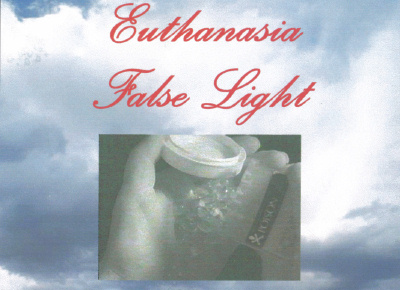Also see: Texas
“Tinslee Lewis Home Nearly 900 Days After Being Given 10 Days to Live”
(Texas Score Card — April 13, 2022)
After hard-fought legal battles to save baby Tinslee Lewis from death by withdrawal of life-saving hospital care, the 3-year-old is at home with her family. The hospital had invoked the “10-day rule,” which was enacted in 1999. When a hospital decides to use the rule, a partial hospital committee has the power to decide to withdraw treatment for any reason, including the “quality of life.”
Hospitals are not required to hear families’ protests, and the only options available are to find another facility to accept an emergency transfer or to begin legal proceedings.
After a number of court proceedings, the Texas 2nd Court of Appeals granted a favorable verdict that saved Tinslee and stood against challenges from Cook Children’s, the Texas Medical Association and the fake pro-life organization Texas Alliance for life.
Last week, after years of legal battles and constant care, Tinslee was finally able to return home with her family.
“Wrongful Death & Disability Discrimination Lawsuit Filed In Michael Hickson Case”
(Not Dead Yet — June 11, 2021)
Despite the absence of an irreversible or terminal condition, St. David’s South Austin Medical Center (SDMC) physicians deprived Mr. Michael Hickson, a 46-year-old black man with multiple disabilities, of all life-sustaining treatment including artificial nutrition and hydration for six days resulting in his death.
More on Disability Perspective
“The Deadly ‘Quality of Life’ Ethic”
(First Things — July 6, 2020)
Something evil happened recently in Austin. Michael Hickson, a forty-six-year-old African-American man with quadriplegia and a serious brain injury, was refused treatment at St. David Hospital South Austin while ill of CVI-19.
“Local man fights against Texas law to keep wife alive”
(Click2Houston — May 8, 2019)
A woman recovering from a stroke at a local hospital has less than one week to be transferred to a new facility or faces death….It’s a decision made by her doctors, as well as the hospital’s medical ethics committee — and it’s legal under Texas law.
Texas legislative proposal (SB 2089) would protect the lives of patients from unilateral decisions to remove all life support from patients who want to continue to live.
Testimony by Wesley J. Smith in favor of SB 2089 and SB 2129.
“Hospitals Pulling the Plug against Families’ Wishes”
(Townhall — April 25, 2018)
Who decides whether your sick child lives or dies?
Alfie [Evans] isn’t the first child sentenced to die by a British hospital…
Can it happen in the U.S.? You bet. It depends on what state you live in.
Virginia Passes Futile Care Law
(February 2018)
SB 222 and HB 226 have passed.
The legislation gives health care providers the right to withhold or withdraw life-sustaining treatment without consent or even against the wishes of the patient or the patient’s designated decision maker.
The new law is virtually identical to the futile care policies and law in Texas with one exception. The Virginia law gives families the right to a court review.
“Life-sustaining treatment” is defined as “any ongoing health care that utilizes mechanical or other artificial means to sustain, restore, or supplant a spontaneous vital function, including hydration, nutrition, maintenance medication, and cardiopulmonary resuscitation.” (§ 54.1-2990)
“Extreme and Outrageous End-of-Life Communication — Beyond the Bounds of Common Decency”
(Medical Futility Blog — February 2017)
“Keeping Patient Alive Can Be ‘Non-Beneficial Treatment'”
(National Review — June 29, 2016)
“Whose Life Is It Anyway”
(National Review — June 3, 2013)
“Supporters of TX ‘Futile Care’ Law Continue to Maintain the Status Quo”
(Not Dead Yet — May 10, 2011)




